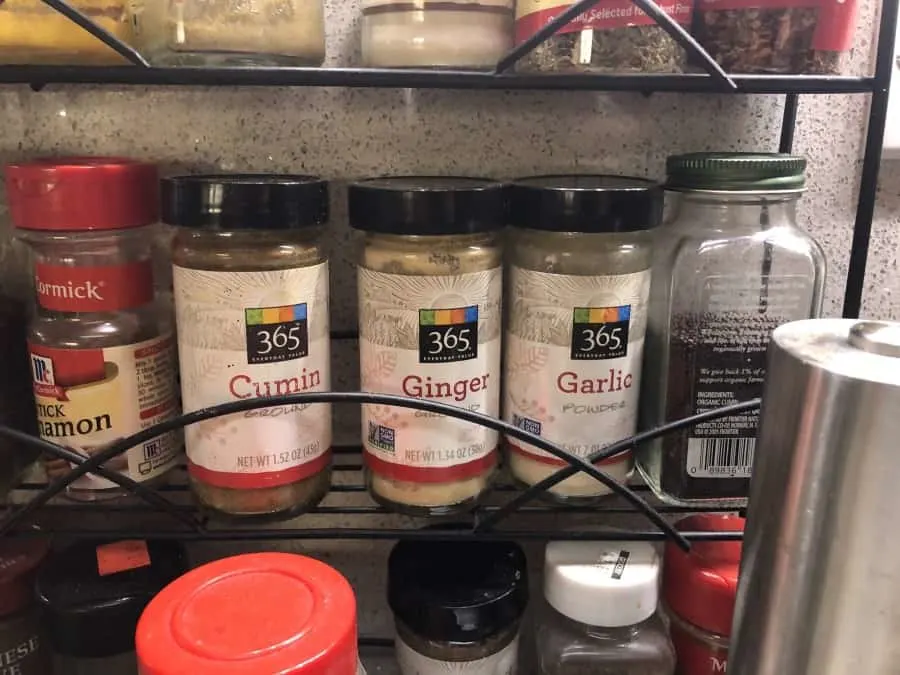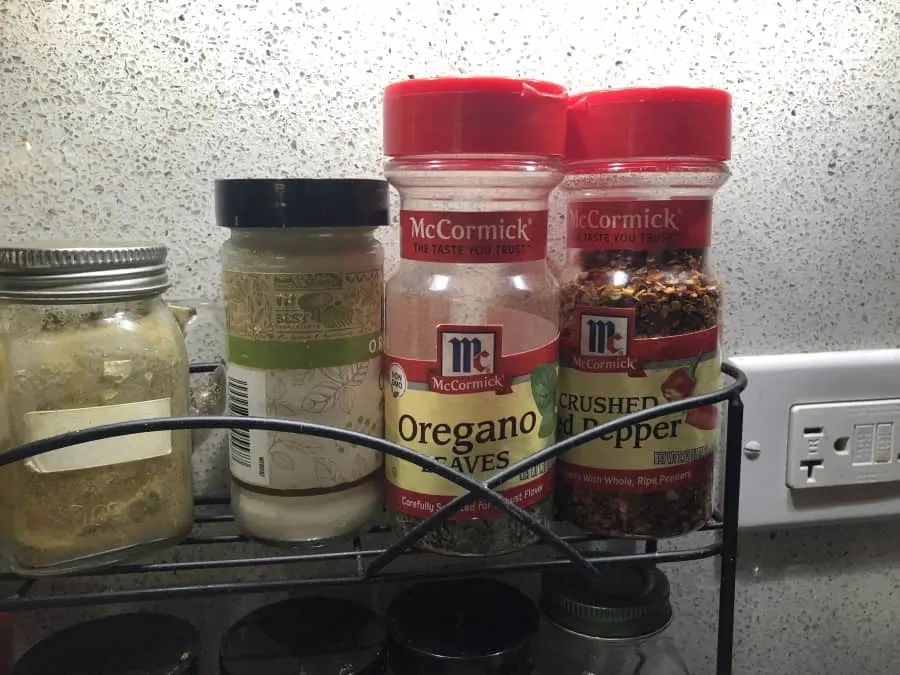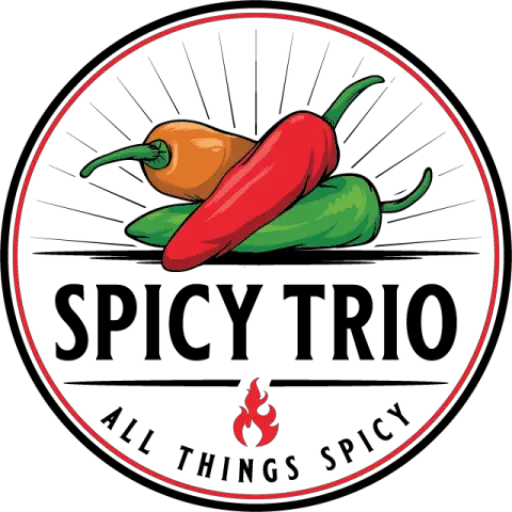Sometimes when in the kitchen hoping to flavor up one of your meals, you’ll find yourself reaching for a spice that might’ve been in your cupboard for years. Hesitation would naturally sink in, as you wonder how old those spices are. You’d be hard-pressed to gauge whether your food will suffer from being seasoned with potentially expired spices.
Most of us know extraordinarily little about spices outside of their literal usages, so it can be challenging to ascertain whether it’s a good idea to use them after a large amount of time has passed.
Spices have different expiration dates depending on whether the seasoning is fresh, dried, grounded, or whole. Fresh herbs will generally go bad after about 2 weeks, while dried and ground spices last between 1 and 3 years. Whole spices last the longest, typically reaching a shelf life of 5 years.
We all have spices in our cabinets that have been sitting there for much too long. But we often do not know much about their shelf life or how to tell if or when a spice has gone bad. In this post, we will cover both and provide general shelf life guidance for 50 common spices!

How Long Do Spices Generally Last?
Spices come in different forms: fresh, dried, ground, and whole. Various categories of spice have different lifespans.
- Fresh spices, that is, physical herbs and vegetables that you cut up and use in your food, last up to 2 weeks if the conditions are right. Fresh spices degrade much quicker than any of their counterparts, but typically offer a greater range and depth of flavor.
- Dried, ground, and whole leafy herbs such as basil and rosemary spices can last up to 3 years, and sometimes even 4 years if taken care of properly.
- Whole spices will last up to 5 years.
Dried, ground, and whole spices tend to be purchased in bulk, and depending on your usage, that’s either a good idea or bad one. Usually, when buying spices, we’re not concerned about expiration dates; we’re worried about how long they’ll last us, not how long they’ll be good for.
When purchasing in bulk, we run the risk of not using all the spice before they go “bad.” For example, black pepper tends to be bought in substantial quantities, but it’s sprinkled on food in minimal amounts, guaranteeing that the container of black pepper will last a long time.
Wanting spices to last is a good idea, but you don’t want them to last beyond their fresh by dates.
Shelf Life of 50 Common Spices
Every spice has a different expiration date, but there are patterns within spice categories so you should never be too surprised about your particular spice’s expiration. While expiration dates may seem final, you are ultimately better off tasting your seasoning yourself to see whether it’s expired or not. Here is a general list of expiration times for 50 of the most common spices:
| Spice | Shelf Life |
| Allspice | Allspice, when stored properly, should last you 3-4 years. |
| Anise | Grounded anise will begin losing its flavor after 6 months and should get replaced by then. If you have anise seeds, if properly stored, it’ll last 3-4 years |
| Apple Spice | Sometimes called apple pie spice, apple spice will last you 2 to 3 years before losing flavor. |
| Basil | Fresh basil usually lasts between 5 and 7 days in your refrigerator. Dried basil will last you 2 to 3 years if stored properly. |
| Bay Leaf | Dried bay leaf, when stored in optimal conditions, should last 2 years. Bay leaves can also be stored in the freezer to maintain its flavor potency. |
| Berbere | Berbere, an Ethiopian blend of spices, is unlike other grounded spices because its expiration date is much sooner than different blends. Berbere will maintain maximum potency for approximately 3 to 6 months, and if stored properly, can last up to a year. To be safe, you should only buy this spice in bulk if you’re sure that you can finish it within 6 months. |
| Black Pepper | Black pepper ground typically lasts 1-2 years. If you have black peppercorns, they will keep anywhere between 3 and 4 years. |
| Cajun Spice | Cajun spice will last you 2 to 3 years when stored properly. |
| Cardamom | Cardamom will last you 3 to 4 years if stored properly. |
| Cayenne Pepper | Cayenne peppers should last you 5 to 7 days if you purchase it fresh. Otherwise, if you have the ground dried version, you’ll find it lasts 2 to 3 years, and potentially even longer if you store it properly. |
| Celery Seeds | Celery seeds generally last you 3 to 4 years, and even up to 5 years if you take care to store your seeds properly. |
| Chili Powder | Chili powder, when stored properly, should last you 3 to 4 years. |
| Chipotle Powder | Properly stored, chipotle powder will last 3 to 4 years. |
| Cilantro | Fresh cilantro lasts up to a week, while dried and ground cilantro will last 2 to 3 years. |
| Cinnamon | Cinnamon typically comes with a best-by date on its bottle, but if not, know that cinnamon has a reasonably long lifespan like other spices. Ground cinnamon usually expires a year after its best by date, while cinnamon sticks, on average, last 3 to 4 years. |
| Cloves | Fresh cloves will last up to two weeks. Dried and ground cloves will last you between 2 and 3 years if stored properly. Whole cloves can last you up to 5 years. |
| Cream of Tartar | Cream of tartar will last up to 4 years, but it will begin losing potency after 6 months. |
| Cumin | Ground cumin and cumin seeds both last a good 3 to 4 years. |
| Curry Powder | Curry powder will last you 3 to 4 years if stored properly. |
| Fennel | Fresh Fennel will last you 2 to 3 days if wrapped in a paper bag and simply left out on the counter. If you put it in the refrigerator, it can last you between 7 and 12 days if you keep it covered by a moistened towel. Fennel seeds, on the other hand, will last you 3 to 4 years. |
| Garlic | If left unpeeled and stored correctly, a head of garlic can last up to 6 months. Single unpeeled cloves will last up to 3 weeks. Once the garlic’s skin is taken off, it rapidly degrades, so a single peeled clove of garlic will last up to a week. Once chopped, it will only last up to a day. Grounded garlic will last you up to 2 years if stored properly. |
| Ginger | If stored in the refrigerator, whole ginger will last you up to 3 weeks if it hasn’t been exposed to moisture or air. Grounded ginger root usually comes with a best by date, but it should last years past that date if you store it properly. It can last 3 to 4 years. |
| Grains of Paradise | Grains of paradise will maintain its potency for up to 6 months if stored properly. |
| Hungarian Hot Paprika | Hungarian hot paprika, just like regular paprika will last 2 to 3 years. If stored under ideal conditions, it can last up to 4 years. |
| Italian Seasoning | Ground and dried Italian seasoning will last you 2 to 3 years. |
| Jalapenos | Fresh jalapenos will last you up to 7 days or a couple weeks in the fridge. Ground and dried jalapenos will usually last you between 2 and 3 years. |
| Korma Curry Powder | Korma curry powder will last 3 to 4 years. |
| Mace | Mace will last you a year, but it can begin losing potency after 6 to 8 months. |
| Mint | Fresh mint will last you 7 to 10 days at most if stored properly. Dried and ground mint will last you 1 to 3 years, and mint extract will last you 4 to 5 years. |
| Mustard Powder | Mustard powder, dried and ground, will last you 2 to 3 years. |
| Nutmeg | Ground nutmeg will be good for up to 2 years, while well-stored nutmeg seeds will last you 4 years. |
| Onions | Fresh onions will last you up to 7 days if stored properly. The dried and ground versions of onion will last you 2 to 3 years. |
| Oregano | Properly stored oregano leaves will last between 1 and 3 years. Grounded oregano will last between 3 and 4 years. |
| Paprika | Paprika should last you 2 to 3 years on average, and its lifespan can be extended like other peppers if stored properly. |
| Parsley | Fresh parsley will last up 2 weeks if stored correctly. Ground and dried parsley will last between 1 and 3 years. |
| Red Chili | Fresh red chili peppers, if stored properly, will last between 2 and 3 weeks in the fridge. Thicker walled peppers almost always last longer than their thinner-walled counterparts. If your pepper isn’t cut yet, then it will last longer than if it was cut. Red chili powder will last you 3 to 4 years. |
| Red Pepper | Crushed red pepper will generally maintain its quality for 2 to 3 years. Traditional red bell peppers can last up to 2 weeks in the fridge, assuming you haven’t cut into it. |
| Rosemary | Fresh rosemary will last up to 2 weeks if stored correctly. Ground and dried rosemary will last between 1 and 3 years. |
| Saffron | Saffron lasts up to 6 months before losing its potency. |
| Sage | Fresh sage lasts 10 to 14 days. Dried sage leaves will last 1 to 3 years, and ground sage leaves will last 3 to 4 years. |
| Sea salt | Sea salt is one of the only spices that can last indefinitely if it’s pure. If the salt is iodized, it can last up to 5 years, which is still a very long time compared to other spices. |
| Sumac | Sumac lasts approximately 1 to 2 years before losing its potency. |
| Taco seasoning | Taco seasoning should last up to 3 years for the best flavor quality. It will still retain some of its flavors after that point and can still be edible. If your taco seasoning starts to clump and get moist, then it will be harmful to consume and should be thrown out. |
| Thyme | Fresh thyme lasts up to 2 weeks in the refrigerator. Dried and ground thyme will last 3 to 4 years. |
| Tsire | Being a blend of different spices, tsire’s best-by date is volatile, but in general, it will last up to 2 months. |
| Turmeric | Turmeric will last between 2 and 3 years if stored properly. |
| Vanilla Beans | Vanilla beans will last between 2 and 3 years if stored correctly. |
| Wattleseed | Like other seeds, wattleseed can last between 3 and 4 years. |
| White Peppercorns | White peppercorns will last you between 3 and 4 years. |
Do Spices Last Past Their Expiration Date?

Spices can last past their expiration date. The conventional wisdom of throwing away foods past their expiration dates doesn’t apply to seasoning in the same way.
When spices “expire,” they begin to lose their flavor. They aren’t spoiled in the sense that they taste bad, they just start to lose their pungency. Eventually spices can become contaminated and spoil but that is usually some date past the expiration date.
In other words, older spices lose much of the flavor they once had. Seasoning that has been left in your cupboard for years probably doesn’t taste as strong or interesting as the day you first purchased it.
If you ever had a spice in your kitchen for a long time and finally got around to using it again, but were alarmed by its disappointing effect on your meal, then it probably lost its freshness and pungency a long time ago.
Can I Use Out-Of-Date Spices?
Spices are interesting ingredients because, unlike expired foods, generally you won’t get sick if you choose to consume old seasoning. You won’t risk getting an upset stomach or food poisoning; the only thing you risk having is a disappointing meal.
How Can You Tell If Spices Are Still Good?

When determining whether your spice is still good, you can pour some seasoning in your hand and take a whiff. If your spice’s aroma is faint or nonexistent, it might be time to replace it.
Unlike foods, most spices don’t have an easy visual indication of having gone bad. They are fairly stagnant and will look the same years after you’ve purchased them, so it’s important to actually taste your spice and use your own judgment.
As mentioned, spices can last past their expiration date, especially if stored properly, so a glance isn’t sufficient in determining their quality.
What Is the Best Way to Store Spices?
When storing your spices, you want to put them in an opaque container. You might’ve thought those containers are for show, but those opaque containers serve the purpose of extending the lifespan. They extend the shelf life of your spices my limiting their exposure to sunlight. Sunlight will degrade the flavor compounds in your spices more quickly when they are exposed.
Even though the spices you own have probably outlived every consumable item in your house, they too have an expiration date that you should be wary of.
Where Are the Best Places to Store Spices?
The best place to store spices is in a cool, dark area of your house that won’t be susceptible to being illuminated or moved around. Any exposure to light and heat will cause a loss of flavor, so avoid storing the seasonings in places that can generate heat or can be reached by sunlight. Keep your spices tucked away in the shadows of your house, unbothered and unprovoked.
Can You Freeze Spices to Extend Their Shelf-Life?
We freeze foods without thinking twice about it to extend their lifespans in our kitchens. But we generally do not apply that same logic to spices.
Generally, it is not a good idea to store spices in the fridge or freezer because of the humidity. Dry spices like a dry environment because wet environments can lead to clumping and shorter shelf lives.
If you do choose to freeze spices because they are herb based and more perishable or you bought a ton of spices in bulk below are a few tips to do it right:
- Only freeze dry spices in vacuum packs where all the air has been removed, this will prevent moisture from contaminating them.
- Do not freeze spices if you are going to use them frequently.
- If you are going to use your spices frequently I recommend filling a smaller container and use that instead of the bulk container which is being stored in your freezer.
Closing Thoughts
Depending on what kind of spice you have, the longevity of the seasoning can vary. Fresh seasonings like herbs typically last up to 2 weeks at most and will eventually spoil. Other dry forms of spices do not necessarily go “bad” and will last 2 to 3 years if dried or ground, and up to 5 years if whole. Spices are sensitive and can quickly lose their depth of flavor if not stored correctly in cool dark environments.
